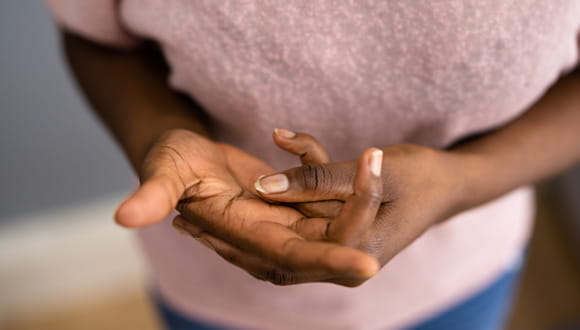Does Cracking Your Knuckles Cause Arthritis?
June 8, 2020 - Shaina HuntsberryAnxiety, restlessness or just pure pleasure — there are lots of reasons why many find comfort in cracking their knuckles. But, does it cause arthritis? The short answer is no.
According to Dr. John Fackler, orthopedic surgeon at Houston Methodist, "There are no known detrimental effects to cracking your knuckles." At worst, knuckle-cracking may cause temporary swelling or a feeling of weakness in the hands — but arthritis, not quite.
What does happen when you crack your knuckles?
Dr. Fackler explains that the pressure applied to knuckles "causes vapor pockets" within the fluid inside the joints. This then "creates a vacuum that sucks the joint apart rapidly," causing a popping sound in the knuckles.
So why do so many people find relief in cracking their knuckles? Cracking your knuckles "feels as if it relieves tension in the joints," Dr. Fackler says. "When that phenomenon happens, it causes a distraction of the joint and separates the joint for a brief second. If traction is applied to the joint, it feels as if it loosens up and is more mobile."
So I can crack my knuckles freely? There's no risk of arthritis?
There are several types of arthritis, but knuckle-cracking is most commonly associated with osteoarthritis. In simple terms, "Osteoarthritis is a disease where the articular cartilage, located at the end of the bone on each joint, starts to break down and flake off," causing pain, stiffness and swelling over time, Dr. Fackler explains.
"Osteoarthritis is age- and genetic-related...and people don't get significant osteoarthritis until they're in their 40s, 50s or older," Dr. Fackler says. "The vast majority of arthritis patients have a genetic predisposition to the disease. However, if you have an injury when you're young or tear a ligament or meniscus, that puts you at higher risk for arthritis when you get older."
But wait, there's more. Here's what you shouldn't crack.
Dr. Fackler advises avoiding popping the neck, as it can cause inflammation around the nerves and lead to more serious injuries long-term. "I encourage people not to habitually pop their necks, especially kids."
So, as it turns out, you can crack your knuckles, limitlessly, without the consequences of arthritis. Just don't be too caught off guard if your rings fit a little tighter after a knuckle-cracking session. Cracking knuckles can cause temporary swelling or a subtle increase in the size of your hands, but is ultimately harmless. "There are no long-term studies that show knuckle-cracking causes any damage," Dr. Fackler says. Until then, "When it comes to your fingers, don't even worry about it."
Snap, crackle and pop away.








